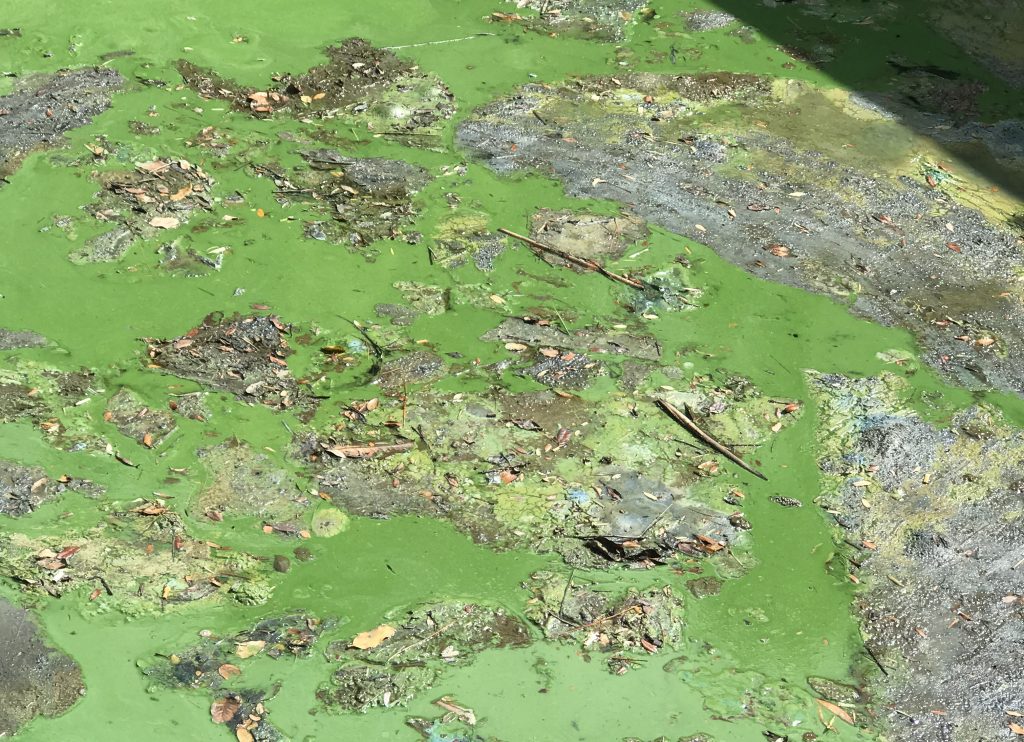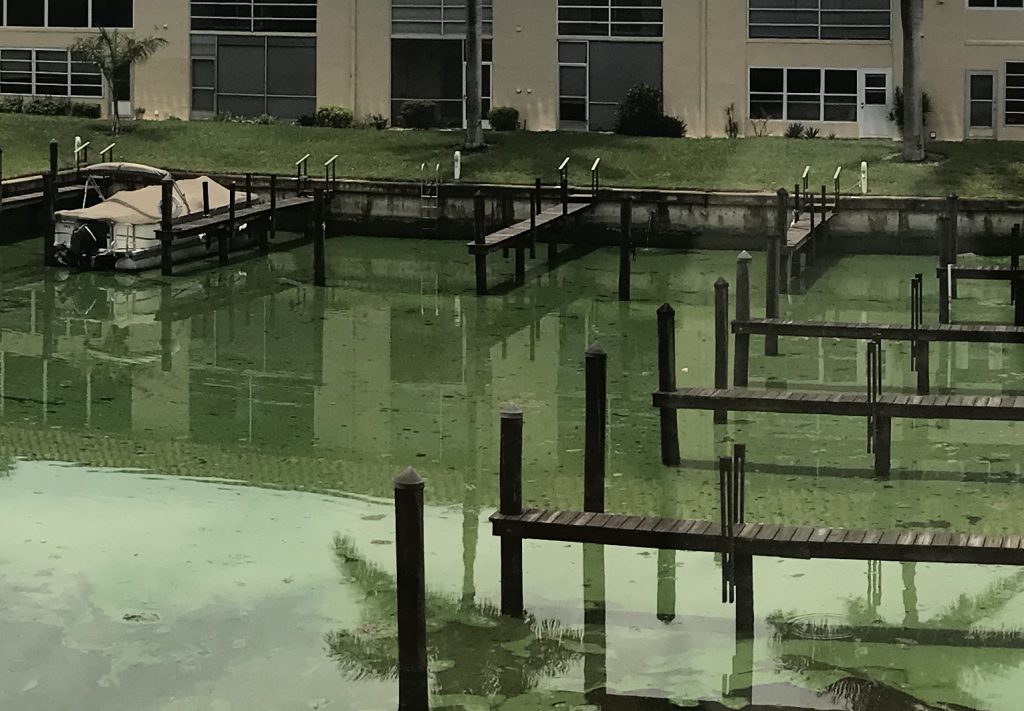July 26, 2018
By Florida Sportsman Editor
The crisis in Florida's waterways hits us all hard this summer.

The crisis in Florida's waterways came home to us at Florida Sportsman in a severe way this week when we had to shut our office due to toxic algae in the adjacent canal. The algae came into the St. Lucie waterway with the Lake Okeechobee discharges and now coats the canal's waters, its seawalls and the hulls of docked boats with a sickening coat of green scum. Its odors are noxious and its fumes can quickly sicken you. Headaches, nausea and dizziness are common symptoms of exposure to the air near the canal. Contact with such algae-laden waters has been documented to be toxic. It's a serious health threat.
The canal behind the Florida Sportsman office is far from the only location in the state to be swamped by the algae.
Since June 1, when the Army Corps of Engineers began discharging Lake O water to the St. Lucie River, TCPalm compiled a list of 68 reported algae blooms in the St. Lucie River, the canal connecting Lake O to the river and the Indian River Lagoon.
Due to the algae and its damaging effects on wildlife and fishing and boating, businesses on the southeast coast as well as on Florida's southwest coast have suffered financial losses and some have even closed. The toll is not only ecological, as fish and mammals have died, and economic, as those financial losses mount, but also a human health threat.
The public agencies charged with protecting Floridians'--and visitors' health--have failed. Health and safety is NOT the number one priority for South florida's water management, and it needs to be.
Florida Sportsman staff is continuing its work from remote office locations, but it's not business as usual. For so many of us who love fishing, boating, and Florida's waterways, the summer of 2018 is turning out to be a heartbreaking reminder that business as usual needs to change in the state of Florida.
We have to stop business as usual, starting with the way the USACE and SFWMD manage the state's waters. Currently the water system isn't managed as a whole, which results in sugarcane being the top priority when any reasonable person would agree the top priority should be the health and safety of Floridians.
This fall's elections are the perfect chance to change business as usual and elect officials willing to make a difference in the state water management system.

In addition to mismanaging our water, the State of Florida is not informing or protecting its citizens:
- There is dangerous misinformation on public websites. Other states like Wisconsin, Ohio and New Hampshire where cyanobacteria has also been a threat have made it a priority to give their citizens the science they need to understand the risks, and have programs to ensure their citizens are safe.
- There has been inadequate testing by state agencies to determine the dangers that residents and visitors face. These agencies are not testing in the right places, not testing often enough, do not employ enough staff to do proper testing at the DEP. You can turn to bullsugar.org to learn more about the risks of inadequate testing.
- There has been inadequate warning to at-risk communities: Insufficient and tardy warnings as we've seen around St. Lucie and Caloosahatchee communities can imperil the most vulnerable of us--the young and the elderly--to sickness from exposure to these toxins. However, the toxins can cause damage indiscriminately and do not expose yourself to waters where the algae may be present, even if you do not see it.
- There has been insufficient data collection: Hospitals should be documenting all cases of short term impacts and long term impacts.
- The toxins remain after the cyanobacteria die. According to Dr. Larry Brand, of the University of Miami, crabs, shrimp and dolphin in Florida and Biscayne Bays have tested for high levels of cyanotoxins.
In addition, fishing guides and other water-related businesses are being destroyed by this problem, yet these guides and businesses do not get financial assistance. Business as usual? Contrast this reality with the $382 million that was given to the sugar industry for relief from Hurricane Irma on top of Florida's sugar industry bumper crop in 2017. Fishing guides and water-related businesses in the Keys are still struggling, and they did not get financial aid.
In the case of the crisis in Florida's waterways that is harming its estuaries, these guides and businesses are not being harmed by an act of god, or a private company, but they are being harmed by their own government. More than any other victims, they should be compensated for their losses. Business as usual has to change.

